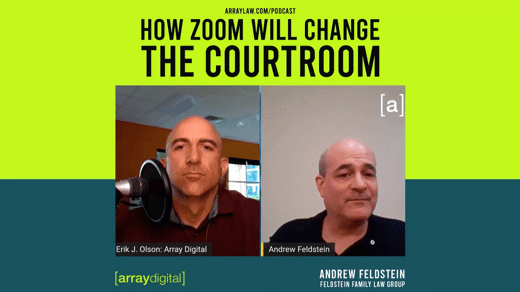Hello. My name is Nick Slinko and I’m a lawyer at the Feldstein Family Law Group. Today I will be talking about the concept of Notice in Family Law. You might think that giving someone a heads’ up about starting a Court case, for example, would be common sense. But as the saying goes: common sense is not so common.
As a Family Law practitioner, I need to know the Family Law Rules inside and out. I know what you’re thinking: he has them memorized and can recite them in his sleep. Because of this, I can tell you that Notice is addressed in various places throughout the Rules.
Potential clients will often ask me at an initial consultation whether we can go to court and obtain an order without their spouse having any knowledge of the proceedings (i.e. can we proceed on our own, without giving them notice of our Motion or Application, for example). There are various reasons a potential or existing client would want to proceed in this manner, some of which may be justified in law, but most of which are not. For example – their spouse does not really want to separate or they do not want to upset their spouse by letting him or her know that a lawyer is now involved in their separation.
Despite this, there are mechanisms within the Rules that allow people to bring a motion without notice against the other side. This is sometimes referred to in law as an “ex-parte” motion. One instance that may justify bringing an ex-parte motion would be as follows: there is a possibility that the opposing side may dispose of assets in the pursuit of defeating your claim, in a sharing of the family assets, for example. And so a motion to freeze the assets at risk of being disposed, or a motion to obtain a certificate of pending litigation may be necessary before the disposition or depletion takes place. Another example may include an instance where there is threat of harm or abduction of a child, and an urgent restraining or non-removal order is needed to protect the spouse and/or a child or children. However, no matter what the situation, an order obtained on an ex-parte basis is not going to resolve all of the issues on a final basis and the parties will be required to be brought back before the court within a specified time frame. Basically this structure is in place so that the opposing party can properly present his or her case before a final decision is made.
In other words, because of the fact that notice was not given to the opposing side at the outset, the Family Law Rules dictate that the matter return to court within 14 days, unless otherwise ordered by the Judge.
As can be seen, notice is the right of a party against whom a claim is being made, and it is the obligation of the party making the claim to provide such notice.
To this extent, even if a spouse wants to make a claim in Court that they know the opposing side will not challenge, such as a simple uncontested divorce, but they have had no contact with their spouse for several years nor any idea as to where he or she may be, they will nonetheless be required to show to the court all reasonable efforts they made to locate the opposing party, in order to provide him or her with notice of that claim. Service of the pre-populated Court form that is required for someone to get a divorce, even on an uncontested basis, must be proven if not explicitly acknowledged by the receiving party. Without this, a Court is highly unlikely to allow substituted service, which means that the spouse wanting to make the claim for the uncontested divorce will not be able to do so until such time that they can satisfy the Court that they have exhausted all possible avenues in trying to locate and notify the opposing side of their claim.
If you feel you have a situation that will require bringing a motion without notice, please contact us at 905-581-7222 for an initial consultation. I’m Nick Slinko. Thanks for watching.



